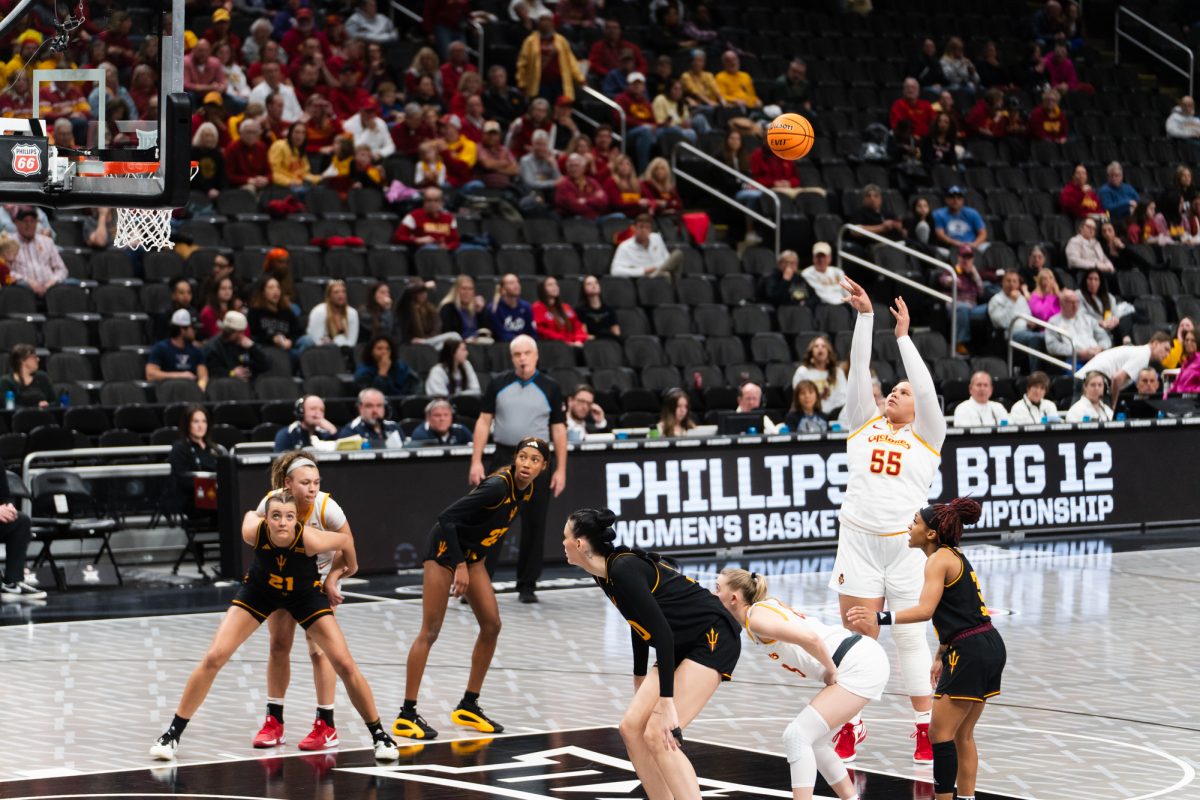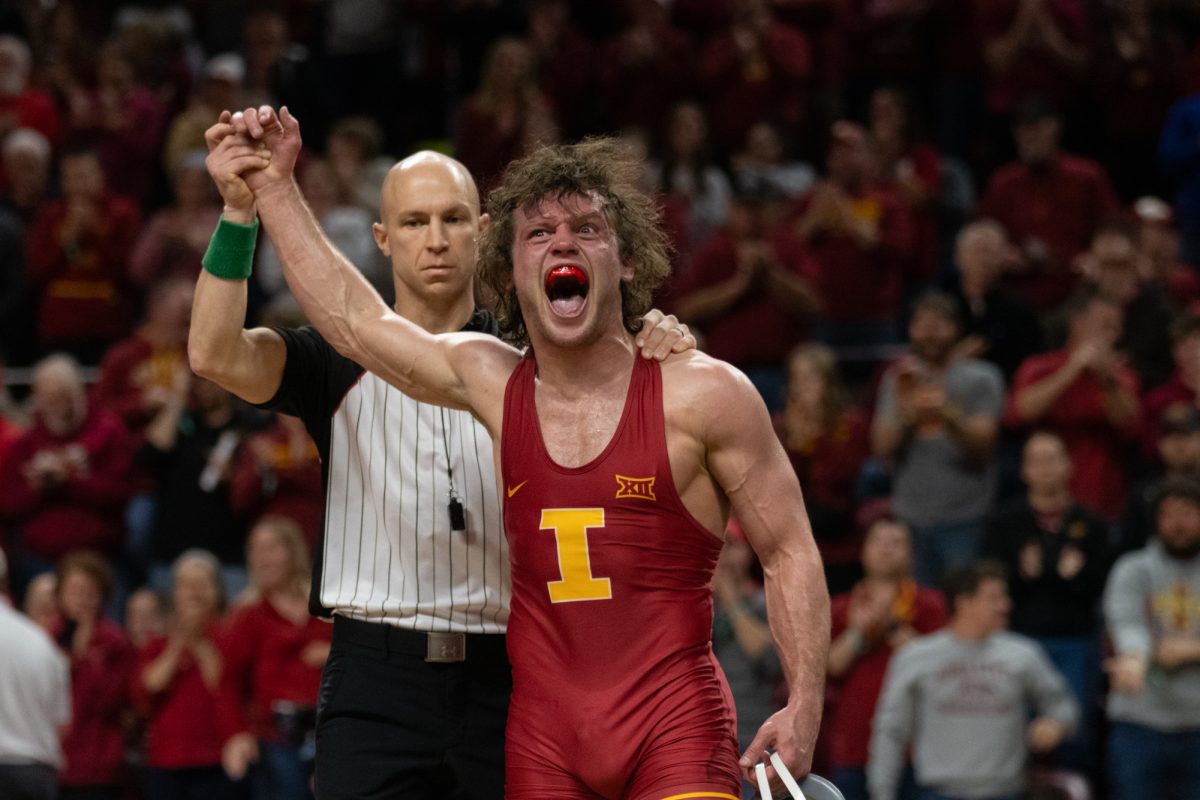Sandra Day O’Connor visits, admires Iowa court system
September 8, 2010
Retired Supreme Court Justice Sandra Day O’Connor on Wednesday told more than 200 elected officials and guests of the Iowa Bar Association from across the state that she admires Iowa’s court system.
“Iowa has made a good choice,” O’Connor said. “That’s why people say, ‘As Iowa goes, so goes the nation.'”
But she also warned the crowd of the dangers of special interest and campaign fundraising in judicial elections, like that of the big money campaign led by failed gubernatorial candidate Bob Vander Plaats to oust three Iowa Supreme Court justices. O’Connor said ousting justices based on one case is not a proper reaction.
“Justice [David] Souter and I both look at the Court as the one safe place where a person can have a fair and impartial hearing to resolve a legal issue, and we have to keep that,” O’Connor said. “[We] have to address the pressures being applied to that one safe place … to have it where judges are not subject to outright retaliation.”
O’Connor, the first female Supreme Court justice, nominated by President Ronald Reagan; the first female Arizona State Legislature majority leader; and was part of a panel speaking to the benefits of a merit-based system of selecting judges, like that in Iowa and O’Connor’s home state of Arizona.
In Iowa, only four judges have ever been ousted by retention vote. None of them were Iowa Supreme Court justices.
O’Connor warned the crowd against making any major changes to the judicial system. Republican gubernatorial candidate Terry Branstad said in August on WHO 1040 AM Radio that he would plan to change the system.
“I think the system is flawed,” Branstad said. “That’s the frustrating thing as governor. You only get to choose from the three that are nominated for the Supreme Court or District Court from two.”
Those who get nominated come out of a vetting process by a nonpartisan commission. The commission consists of half lawyers and half non-lawyers.
Branstad said he would favor a system similar to the federal level in which he would get to choose whomever he wanted as governor.
The merit-based system replaced a system of political elections for judges in Iowa by a ballot measure in 1962. It was advocated by then-Gov. Norman Erbe, Republican, who called the popular election system a “degradation to the judiciary,” so said Allan Vestal, dean of the Drake Law School.
Vestal said our system works because retention vote is an extraordinary rare use and “not a forum to overturn a decision.”
He said the aspect of a retention vote certainly should not be based on one single ruling. That, he said, would cause a judge to worry each decision will be subject to public scrutiny, rather than the rule of law.
Jan Laue, secretary-treasurer of the Iowa Federation of Labor, AFL-CIO, said judges must base their decisions on constitutional and statutory law, not on public opinion. The panelists drew comparisons of calls for removal of judges after other landmark cases like Brown v. Board of Education.
The question on the ballot, Vestal said, is not about same-sex marriage. The misrepresentation the courts are legislating when they find an act of legislation invalid is to not overstep the judicial branch’s role.
Strong courts mean a strong economy
Mike Petro, chief of staff for the nonpartisan Committee for Economic Development, said most companies do business in nearly every state. When it comes to choosing where to locate, they want the state where they would get the most fair and impartial treatment with a level playing field, he said.
Petro said that once the judicial process becomes politicized, it’s “hard to avoid perception they’re buying outcomes.”
Barry Griswell, president of Community Foundation of Greater Des Moines and former CEO of Principal Financial Group, said there had been times he stopped doing business in states where the courts were unpredictable.
“The public doesn’t think in terms of state judges, city judges [or] article III judges. They’re all just judges — they lump them together,” O’Connor said.
When asked if the term “judicial activism” is thrown around too loosely, panelists said the integrity of the courts is such a vital issue, rhetoric must be toned down.
Members from the Iowa Bar Association said they had been trying to get Justice O’Connor to visit Iowa for years, and they scheduled this event prior to Vander Plaats launching Iowa for Freedom.
Photography and recording audio were banned from the panel discussion. However, it was allowed for the news conference following the event.
If the retention vote is politicized, Vestal said, it would lead to situations like those in West Virginia, where the 2007 and 2008 judicial election cycle raised more than $3 million.
“We’re heading towards that result if we go this route,” Vestal said.
He added that the misuse of retention and politicization has severe consequences, and Iowans intuitively understand this.






